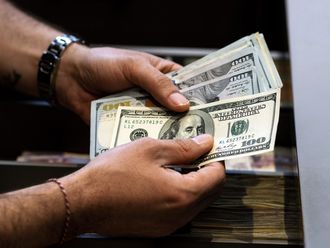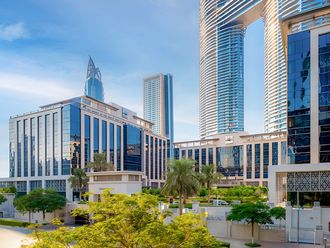
Fresh from his victory in the elections, US President-elect Donald Trump said it best: ‘Winners are winners. We like winners’.
And which also translates into: losers are losers.
Whilst this may be obvious, it applies to the field of capital markets as well, where since the IPO bandwagon, the biggest gainers have been the likes of Salik and Parkin, outperforming even stellar blue-chip names such as Emaar Development, on a business model that was perfectly tuned to a hedge against inflation.
But inflation is such a desperately dull subject, and one even more difficult to sustain that it did not behoove market analysts to comment on this aspect of their business model. Despite it being the near perfect hedge against inflation and the best model for cash flow matching.
The dance of prices - some up, some down - is the market’s way of allocating scarce resources in its self-organizing way. But Inflation is something else, and it is apparent that you cannot stabilize prices by setting out to inflate it as monetary policy has continuously done with consumer- as well as asset prices. To the point where the most speculative assets rise to the top of the list
The management of Salik and Parkin had repeatedly advertised their intentions to increase tariffs and introduce ‘variable’ or ‘surge’ pricing. Yet, analysts for the most part were still accounting for cash flows in the traditional sense, looking at the model through the lens of population growth, rather than the increased velocity of transportation that was highlighted under Dubai’s Urban Plan of 2040.
Density is destiny, and so it has been for the year 2024, across all sectors in the capital markets, with infrastructure, construction, real estate and financials all performing well. Even as there have been laggards in the form of Investcorp, Phoenix, Americana, LuLu, Al Ansari and Alef.
The biggest difference between winners and losers have been the valuations offered to an increasingly savvy public investor ecosystem that is not only comparing between sectors but also looking at what international metrics are for most of these companies. Even as they look at relative valuations.
Indeed, some of the companies have become more compelling at current valuations, and like Taaleem and Tecom, serve as a basis for bargain hunters to pick up at lower levels and build positions for the long term.
Which brings us to the latest IPO that closed, Talabat. Often described as a ‘tech’ offering, the food delivery platform (or quick-commerce) has captured the international zeitgeist, following closely the Swiggy IPO in India and a recent Qualified Institutional Placement offering for Zomato.
Just like the other companies, there was hardly any retail interest given the cash burn that these companies and the investment that is required to sustain the infrastructure and the growth.
Swiggy’s results failed to dampen optimism that was prevalent amongst investors, and its share price has risen despite widening losses.
Subsidiary more valuable than the parent
Meanwhile, Delivery Hero (parent company of Talabat), is having its own set of problems and its stock has continued to fall, despite the windfall from Talabat. This makes the latter now worth more than the former, a strange set of circumstances that augurs for the subsidiary to face an increasingly competitive landscape in the months ahead.
The BNPL model (which has permeated through to the real estate sector as well) is alive and kicking in the capital markets, with investors willing to pay more now for growth later. But clearly, there is a boundary horizon for this after which it simply does not make sense to plough additional capital any longer.
It is possible that Talabat becomes a “meme” stock, but it is more likely that as competition increasingly asserts itself, Talabat may well trade at lower levels after its initial pop allowing for greater corporate activity such as a merger or even an acquisition as larger players look to increase their market share.
Of course, to trade with these expectations is to trade on hope, which is never a good strategy. The lesson for 2024 has been boring is sometimes the best way. And apart from the natural gas and fossil fuel companies, the privatization companies linked to pricing power have been the ones that have performed best.
“Loses are losers,” says Trump. In some cases, as Bob Dylan song goes – ‘for the loser now is later to win’.
Investors will be looking closely at the evolving landscape to determine which of these companies are the ones that continue to usher in the golden age of UAE’s capital markets.













